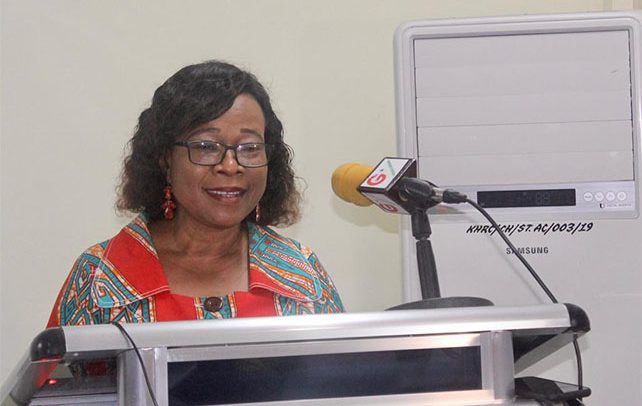Dr. Charity Binka
The African Media and Malaria Research Network (AMMREN), is calling for an increase in investment and innovation to meet the World Health Organisation (WHO) target of at least 90% reduction in malaria case incidence, mortality rates and elimination by 2030.
It highlighted that there should be the promotion of preventive and curative tools that are available such as the distribution of long-lasting insecticide nets, indoor residual spraying, larval source management, malaria vaccine, intermittent preventive treatment, seasonal malaria chemoprevention and case management.
The organization in a statement to mark the World Malaria Day today said although meeting the target seems impossible with just eight years left, it is doable.
“It is a reminder that there is the need for a united action to speed up the pace of progress to kick out malaria from Africa and the rest of the world,” the statement signed by the Executive Secretary, Dr. Charity Binka said.
She said AMMREN admits the fact that the public health landscape has changed with the outbreak of the COVID-19 pandemic that took the world by storm resulting in the diversion of huge resources to contain its spread.
However, she said that should not prevent governments from keeping an eye on the malaria elimination agenda to ensure that the disease is not put on the back burner.
“The last few years has witnessed sudden pockets of diseases with public health importance, such as the Ebola and the Marburg virus diseases. With such trends of emerging disease outbreaks of other important infectious diseases, it is important that old diseases such as malaria is not left to cause havoc among vulnerable groups such as children and pregnant women,” she said.
Figures from the Roll Back Malaria (RBM) partnership to end malaria show that malaria accounts for 1 in 12 global deaths in children under 5, with the WHO African Region accounting for 96% of global malaria deaths and 95% of cases.
In 2020, there were 627,000 malaria deaths globally, a 12 per cent increase over 2019’s 558,000.
The RBM says there is the need to communicate the urgency of the situation and the urgent need for action and targeted scale up of existing and new tools, such as the RTS,S vaccine, data-led strategies and investment in transformative tools.
The global body has said the malaria fight is at a precarious juncture with the global malaria burden much higher than previously estimated and half the world’s population still at risk of the disease.
AMMREN also noted the importance of the role of the media for strategic advocacy on malaria and urged journalists to tell the malaria story and hold governments accountable to the people.
“The media must also shift focus on excessive news on politics and rather pay more attention to development issues such as malaria prevention,” Dr. Binka noted.
The theme for the 2022 World Malaria Day is “Advance Equity. Build Resilience. End Malaria”.
By Jamila Akweley Okertchiri

